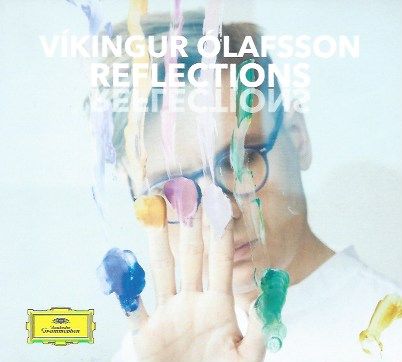Reflections
This really is a voyage of listening; one is led through it, transfixed

This is Classical Explorer's second jaunt to the unique world of pianist Vikingur Ólafsson: previously we covered a disc of Debussy and Rameau. This present release includes some "Home Sessions"; very much part of the CoVID dynamic over the last year or so!
The disc is almost in the manner of a playlist, varied and wide-ranging. But this being Ólafsson, ideas splinter off in all manner of ways. The opening Debussy "Bruyères" (from the second book of Préludes), impeccably sculpted, leads to a "Hania Rani" reworking of music from that copmoser's La Damoiselle élue in which Rani adds an electronic element. Hearing these two "readings" of Debussy's world next to each other seems both natural and instructive:
(... and remember, we heard some of Debussy's Damoiselle on the previous disc we considered).
Taking music that is clearly dear to Ólafsson's heart, Debussy, Rameau, and "riffing" on it is as stimulating as it is delightful. This feels like a window into Ólafsson's brain. As always with this pianist, much thought has gone into ordering of pieces. We hear the "fantasies" on original pieces before we hear the original; Footsteps (with Helgi Jonsson, vocals and synthesisers) is a remarkable transformation of "Des pas sur la neige" - Footsteps in the snow - into a quasi-improvised, somewhat hallucinogenic song:
It takes someone special to present an album like this, lots of reworkings and swimmy improvisations, and to make it work so utterly convincingly. Christian Badura's Muse d'eau (after Rameau) is a superbly relaxing track that acts in contrast to the electronic pulsings of the "Hugar Rework" of L'Entretien des Muses.
Unsurprisingly it is Ólafsson's own improvisation on Debussy that shines - he has after all immersed himself in this music. Here he is, in the piece Reflection, an improvisation on that "Bruyères" we heard above:
Hearing the whole of Pour le Piano after that in the "original" Debussy is as refreshing as spring water, and it's a cracking performance, the "Prélude" infectiously alive, followed by a stately Sarabande and then this scintillating Toccata:
Fascinating to hear Drowned Haiku, an electronic reaction to the Sarabande from Pour le Piano (and how clear and refreshing "Canope" sounds thereafter):
It is, I think, significant that we begin and end with "pure" Debussy piano music. We started with "Bruyères"; we close with the same piece, this time recorded in Teldex Studios in Berlin. Home is where the heart is, and one feels not only the homecoming but just how powerfully Debussy, unadorned, speaks to us.
Another magnificent venture from Ólafsson, then. This really is a voyage of listening; one is led through it, transfixed.
